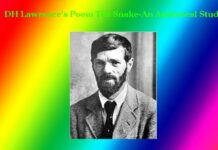Ka’b bin Zuhair | His Life and Poetic Career
Ka’b bin Zuhair | His Life and Poetic Career
Ka’b bin Zuhair | His Life and Poetic Career
Brief Life Sketch: Ka’b bin Zuhair was one of the most famous and popular mukhadrim poets. He was born into a family of the Mozaina clan of Najd. The exact date of his birth is unknown, but he is believed to have been born in the middle of the sixth century. His father, Zuhair bin Abu Salma, was a famous poet of the pre-Islamic period. His mother, Kabashah bint Amar bin Adi, was the daughter of the tribe of Banu Suhaym of the tribe of Ghatfan. Ka’b was born into a family whose all the members were poets. Therefore, he became attracted to poetry from a very young age and took to compose poetry. His father ordered him to refrain from composing poetry at a very young age. He feared that if his son wrote poetry at an immature age, it would degrade the quality of poetry and degrade the dignity of their family. However, Ka’b bin Zuhair disobeyed his father’s ban and continued to practice poetry. As a result, his father imprisoned him and punished him. However, as he continued to practice poetry, his father took him far away from home into the desert and composed a few lines of a poem keeping gaps between, and ordered him to fill in the blanks. Then Ka’b bin Zuhair himself composed the lines of poetry and completed the poem. Then his father was pleased to read the lines of the poem completed by his son and allowed him to write poetry from that day on.
Zuhair was born into a pagan family and spent the majority of his life inciting the Quraysh against Islam by composing poems in opposition to Islam. He even wrote poems condemning the Prophet Muhammad (peace be upon him). His father, Abi Salma, was born into a pagan family but believed in monotheism and one day he learned of the birth of the Prophet in a dream and bequeathed to his sons to follow the religion of the Prophet.
In 630 AD, Ka’b bin Zuhair traveled to Medina with his brother Buzair to convert to Islam. However, in the middle of their journey, Zuhair stopped to go to Medina and sent his brother Buzair to the Prophet Muhammad (peace be upon him) to learn about the Prophet and his religion. After his arrival at Medina, Buzair met his childhood friend Abu Bakr (may Allah be pleased with him) and went to the prophet with him. Meeting the prophet, he became fascinated by the Prophet’s personality and beliefs and embraced Islam. When Zuhair heard that his brother Buzair had converted to Islam, he became very angry and composed poems condemning Islam and the Prophet. Later, after the conquest of Mecca, the Prophet ordered the execution of some of the fiercest opponents of Islam. Among them, Ka’b bin Zuhair was one. Later, on the advice of his brother Buzair, he went to the Prophet and apologized and converted to Islam. There he instantly composed a poem praising Islam and the Prophet and recited it before the Prophet. The Prophet was fascinated by his recitation of poetry and gave him his shawl. After that, he always spent his days with the Prophet as long as he lived. He later participated in several battles on behalf of Islam and contributed to its victory. After converting to Islam, he became indifferent to poetry.
He lived for more than a hundred years and died in 647 AD after serving Islam.
Poetic Career: Ka’b bin Zuhair was a poet of both pre-Islamic and early Islamic periods. His poetry has the characteristics of pre-Islamic poetry as most of his poetry was written in the pre-Islamic period. Islamic philosophy was expressed only in poems written after his conversion to Islam.
He wrote a large number of poems, but most of them have been lost due to a lack of preservation. Only about thirty of his poems are available to date. A study of his poetry shows that the themes of his poetry were condemnation of the enemy, praise of heroes, warfare, animals, love, etc. His poems also reflect the social system, politics, religion, etc. of that time.
His poems written before his conversion to Islam were often condemnatory and in them, he condemned Islam, the Prophet, and his tribal enemies.
Many of his poems deal with camels, horses, donkeys, etc. In a poem he describes the camel he rides as follows:
“Strong and bright is my camel
Runs forward, swift its pace
It crosses the hot sand of the desert
Its gaze remains on the unmarked path.”
His love poems are written in the qasida style and are influenced by his predecessors such as Imraul Qais and al-Nabigha. He begins his love poem with a description of the abandoned abode of his beloved and then describes her beauty. He paints his beloved as a trickster, deceiver and breaker of promises. In a poem he wrote:
‘My beloved is fickle, restless,
Takes many forms like a ghost,
Makes false promises again and again
My hope, my shelter in her is full of illusion
Though I stare at her being enamored.”
One of his most famous poems is ‘Banat Suwad’ (a qasida). He wrote the poem in praise of the Prophet Muhammad (peace be upon him). The following lines are quoted as examples:
“I have placed my right hand
Under the feet of such a person
………………………………………..
Verily the Prophet of Allah is a glittering sword
Made accurately with the iron of Hindustan
White and spotless.”
Another famous poem by Ka’b bin Zuhair is ‘Qashidatul Borda’ This poem is descriptive. The poem has sixty-nine lines. The first twelve (12) lines are written as an introduction. From thirteen to thirty-one lines, the poet gives a physical description of the camel he uses as his vehicle. From thirty-two to fifty-two lines, the poet apologizes to the Prophet Muhammad (peace be upon him) and in the following lines, he praises the Prophet’s Companions and Mujahids. The poem is an incomparable treasure of Arabic poetry in terms of excellence of subject matter, fluency of description, depth of emotion, beauty of language, rhythm, poetic skill, wording, religious frenzy and expression of meaning.
The language of Ka’b bin Zuhair’s poetry is brilliant, emotional and exciting. In his poetry, he uses abundant metaphors. His images are very beautiful and innovative. In a poem, he depicts the beauty of his beloved as follows:
“Her white teeth are washed off with wine
As cold as snow
As sweet as the breeze blowing from North.”
His poetry is a combination of simple and complex words. Some of his poems also use unfamiliar words, but many of his lines are advisory like proverbs.
In conclusion, Ka’b bin Zuhair is surely one of the most remarkable Mukhadrim poets in whose poetry the characteristics of the poetry of the pre-Islamic period and the early Islamic period exist equally. 0 0 0.
Read More: A Brief History of Arabic Literature: Pre-Islamic Period (500 AD-622 AD)
Note: The article ‘Ka’b bin Zuhair Ka’b bin Zuhair His Life and Poetic Career’ originally belongs to the book entitled ‘A Brief History of the Arabic Literature: Early Islamic Period (622 AD -661 AD)’ by Menonim Menonimus.
The Qur’an: Source of Arabic Language and Literature
Related Searches:
Books of Literary Criticism by M. Menonimus:
- World Short Story Criticism
- World Poetry Criticism
- World Drama Criticism
- World Novel Criticism
- World Essay Criticism
- Indian English Poetry Criticism
- Indian English Poets and Poetry Chief Features
- Emily Dickinson’s Poetry-A Thematic Study
- Walt Whitman’s Poetry-A Thematic Study
- Critical Essays on English Poetry
- Tawfiq al-Hakim’s Novel: Return of the Spirit-An Analytical Study
- Tawfiq al-Hakim’s Novel: ‘Yawmiyyat Naib Fil Arayaf’-An Analytical Study
- Analytical Studies of Some Arabic Short Stories
- A Brief History of Arabic Literature: Pre-Islamic Period (500 AD-622 AD)
- A Brief History of Arabic Literature: Early Islamic Period











